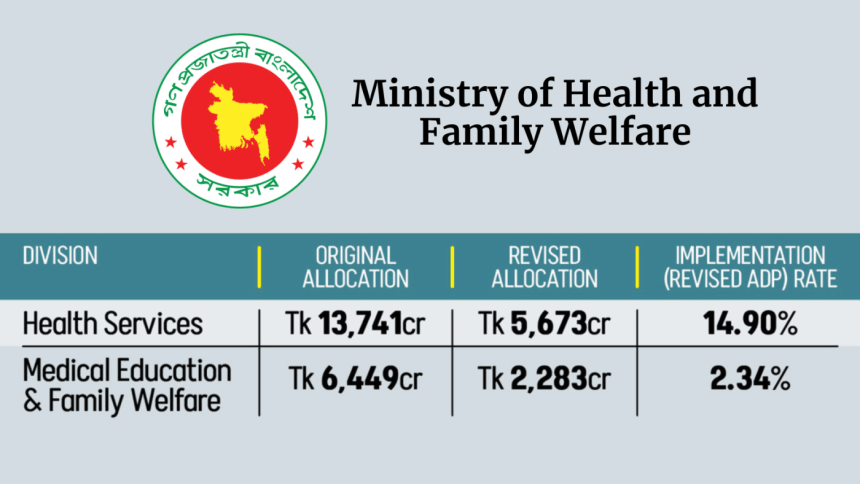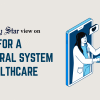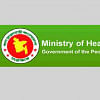Dev budget expenditure: Health ministry puts up poor show again

Two divisions responsible for healthcare delivery have once again ranked among the worst performers in executing their development budgets, spending just a fraction of their allocated funds over the past 10 months.
The Medical Education and Family Welfare Division used just 2.34 percent of its revised Annual Development Programme (ADP) allocation of Tk 2,283.16 crore till April, the lowest expenditure rate among all ministries and divisions.
The Health Services Division fared slightly better, spending 14.9 percent of its Tk 5,673.51 crore budget and ranking fifth from the bottom, well below the national average of 41.31 percent.
This marks yet another year of weak budget execution since the health ministry was split into two divisions in 2017. The only exception was fiscal 2020-21 when the Medical Education and Family Welfare Division achieved the national average, show documents of Implementation Monitoring and Evaluation Division (IMED).
Experts and officials attribute poor ADP execution to the incapacity of implementing agencies, project directors' lack of experience, reliance on the Public Works Department (PWD) for construction work, outdated budgeting practices, and changes in the top tier of implementing agencies after the July mass uprising.
The data on the ministry's dismal performance comes on the heels of a Health Sector Reform Commission report that identifies inadequate allocation, unchecked corruption and mismanagement as key problems in the health sector.
Only 5.2 percent of the current fiscal year's budget -- a mere 0.74 percent of the Gross Domestic Product (GDP) -- was allocated to health sector, the lowest among South Asian countries, according to the report.
The commission, which submitted its report to Chief Adviser Prof Muhammad Yunus on May 5, recommended allocating 15 percent of the national budget or 5 percent of the GDP to the health sector.
CRUCIAL PROJECTS DELAYED
The rollout of crucial health projects faces significant delays due to the implementing authorities' failure to utilise ADP allocations efficiently, making people in urgent need of medical care wait longer.
One such project was taken up to establish full-fledged treatment centres at eight divisional headquarters for cancer, heart and kidney patients.
Approved in July 2019, it was initially designed to build eight cancer treatment centres by June 2022. Later, facilities for treating heart and kidney patients were included in the project involving Tk 2,388.40 crore.
The initiative was taken amid a rise in non-communicable diseases, including heart-related illness, which account for around 70 percent deaths in the country.
But the project authority couldn't complete construction of the health facilities over the last eight years, let alone procure medical equipment and recruit health workers.
"We have sought an extension of the project deadline till June next year and also a revision of costs," said Project Director Towfique Hasan Firoz.
Asked whether it would be possible to finish all the work within the new time frame, he said, "We will try."
Most other projects involved infrastructure development for hospitals, medical colleges, universities, diagnostic facilities, and medical research centres, and also procurement of medical equipment.
REASONS FOR POOR SHOW
Among the 57 ministries, divisions, and constitutional or statutory bodies, only the Anti-Corruption Commission, with an ADP utilisation rate of just 1.29 percent, performed worse than the Medical Education Division, shows the IMED document.
Only four ministries, divisions, and constitutional or statutory bodies lag behind the Health Services Division in terms of ADP implementation.
Prof Shafiun Nahin Shimul, a teacher at the Institute of Health Economics under Dhaka University, said government agencies lack the necessary managerial and administrative capacity, and experience to implement projects in the health sector.
In many cases, implementing agencies don't have financial autonomy, which forces them to seek the ministry's intervention -- a lengthy and bureaucratic process, he said.
"For decades, the budgeting pattern has remained largely unchanged, failing to reflect sector-specific needs. Some sectors require more allocations, while others are unable to utilise funds effectively. The budget should be reallocated based on necessity. But that doesn't happen, resulting in poor implementation."
For instance, more funds are needed for medicine and the repair of medical equipment. "But there is a mismatch in allocations here," he noted.
Following the July mass uprising last year, different agencies and projects saw changes in their top leadership, which might be a reason behind the poor ADP implementation this fiscal year, he said.
"However, there have been some positive developments, such as reduction in unnecessary procurement. Previously, major contractors, often in collusion with one another, were involved in equipment procurement in the health sector. That practice has now been curbed," he added.
The Directorate General of Health Services (DGHS) is implementing 14 out of 19 projects under the Health Services Division.
Asked about the slow pace of ADP implementation, Afreena Mahmood, director (planning and research) of DGHS, said the PWD, responsible for infrastructure development in the projects, has made little progress, making it difficult for other agencies to proceed with their work.
She further said that several posts of project director remained vacant for a long time, hampering project implementation. Besides, the interim government adopted a "go slow" policy for some projects.
"The vacant posts have been filled. We hope to see major progress in the next fiscal year."
The Directorate General of Medical Education (DGME) is implementing the other four projects.
Contacted, DGME Director General Nazmul Hosain said they lack the capacity to handle the procurement process, budget implementation, and other related issues.
To address this, a panel of experts comprising senior and mid-level doctors has been formed to provide training on budget implementation, procurement, and store management, he added.

 For all latest news, follow The Daily Star's Google News channel.
For all latest news, follow The Daily Star's Google News channel. 








Comments